Features > Property News & Insights > Market updates
One in six fast-track home buying plans after FHG expansion
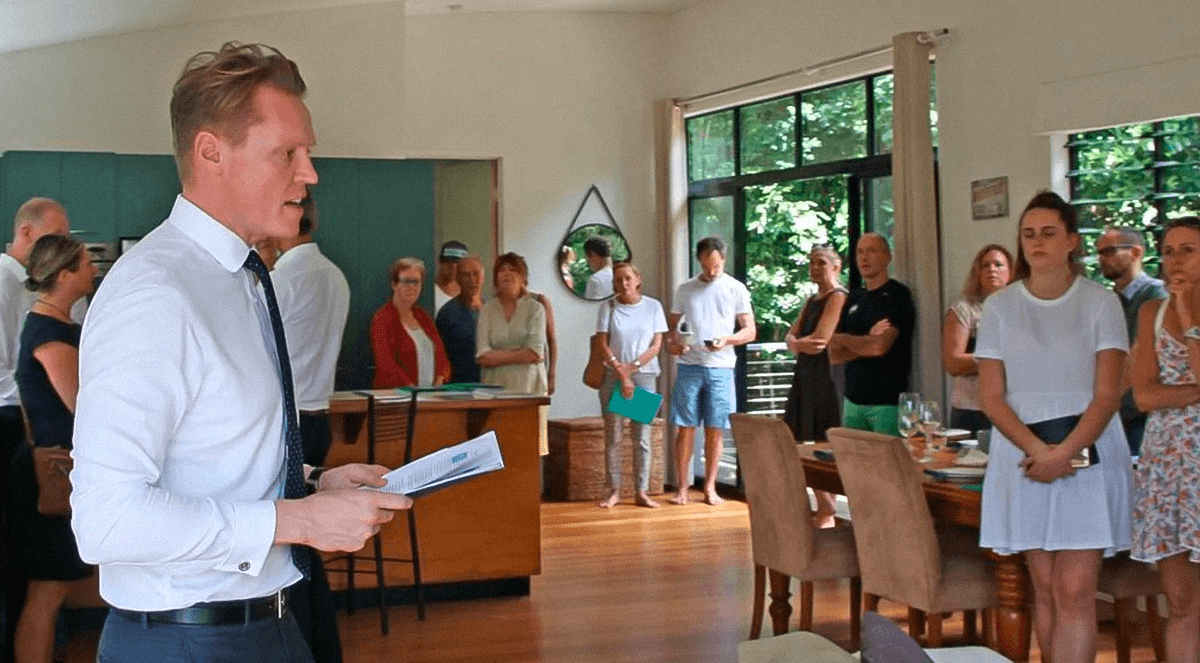
Image from realestate.com.au
KEY POINTS
- New research shows one in six eligible Australians have fast-tracked their home buying plans following the expansion of the Federal government’s FHG scheme
- While 56% of Australians view the scheme positively, almost a third remain unaware of it and one in four hold misconceptions about how it works
- Westpac and Melbourne Institute research shows property price expectations have hit their highest level since 2010 amid assumptions the expanded FHG scheme could drive prices higher
A major expansion of the Albanese government’s First Home Guarantee (FHG) scheme appears to be having an immediate impact on buyer behaviour.
New research shows one in six eligible Australians have accelerated their plans to purchase a home as a direct result of the policy change.
The details
Agile Market Intelligence’s latest Consumer Pulse survey canvassed 1,358 Australians in September 2025 on their awareness and attitudes toward the expanded FHG.
The revamped scheme, which took effect on the 1st of October, allows a wider group of Australians to buy a home with just a 5% deposit, without paying lenders mortgage insurance.
The scheme can potentially save years in getting over the so-called “deposit hurdle” - saving up for a traditional 20% deposit.
Income caps have been scrapped and price thresholds have been lifted to better reflect the median home value in each Australian capital city and regional areas.
According to Agile, 16% of eligible buyers say the expansion has pushed them to act sooner, while a quarter of all respondents (25%) plan to use the scheme within the next two years.
“The 16% acceleration rate indicates the policy is successfully reducing barriers for buyers who were previously unable or unwilling to enter the market,” says Michael Johnson, Director at Agile Market Intelligence.
“That’s a real sign of demand stimulation rather than just a reshuffle of existing intentions.”
Education needed
Despite the strong interest from some potential buyers, the market research company’s survey also found that public understanding of the scheme remains patchy.
While 45% of Australians correctly identified that the guarantee allows purchases with a 5% deposit, nearly one in three (31%) said they were unaware of the policy altogether, and a further 24% held misconceptions about how it works.
Around 9% of respondents wrongly believed the scheme removed state-based stamp duty, and 7% thought the Federal government contributed directly to the purchase price of homes.
“There’s opportunity for better education and communication in this space,” Mr Johnson says.
“Nearly a third of consumers are unaware of the expansion, and another quarter misunderstand how it operates.”
Among eligible consumers, 36% said they would apply to access the scheme online, another 36% would go through a local bank branch, and 28% planned to use a mortgage broker.
Agile says that breakdown challenges assumptions about younger buyers being exclusively “digital-first,” suggesting that most still value face-to-face support for major financial decisions.
Broad public backing
Overall sentiment toward the First Home Guarantee was positive, with 56% of Australians saying they view it as a good policy for the country.
Only 14% expressed negative views, while 30% remained neutral or unsure.
Very positive responses accounted for 20% of those surveyed, and somewhat positive views made up the largest group at 36%.
Agile says that support extends beyond first-home buyers, reflecting a broader appetite for government action on housing affordability.
“The strong positive sentiment spans well beyond those eligible to use the scheme,” Mr Johnson says.
“It shows the public broadly supports government intervention to help address Australia’s housing challenges.”
Westpac/Melbourne Institute survey
While Agile found there’s public support for the First Home Guarantee, separate research indicates that Australians also believe the expanded scheme will push home prices higher.
While overall consumer sentiment fell in their latest monthly survey, Westpac and the Melbourne Institute noted their measure of dwelling price expectations had soared to reach its highest point since April 2010.
In other words, Australians are more confident that home prices will rise now than at any time since 2010, despite affordability being at record lows, a relatively high interest rate climate and low consumer confidence.
If you look at dwelling price movements in Australia and compare them with consumer home price expectations (as in the chart above) you can see a clear correlation between actual price movements and people’s belief in whether real estate prices will rise or fall.
When people believe prices are going up, they act like the prices are going up.
This underlines one of the fundamental drivers of the Australian property market - mindset.
People don’t continue to buy property because things are easy.
They buy because of FOMO, fear of missing out.
Even though it's not easy to get into the market right now, people are finding ways to buy property because they are scared of being left behind as home prices continue to accelerate.
They stretch their budgets, they rush to open home inspections, they bid harder and higher at auctions, and that creates its own momentum.
Now, thanks to the 5% deposit scheme from the Federal government, you've got a brand new wave of first-home buyers flooding into the market, creating yet more FOMO.
Referencing the Westpac/Melbourne Institute survey, independent housing researcher Cameron Kusher is blunt:
“Respondents aren’t stupid, they realise the Home Guarantee Scheme is subsidising demand and will push property prices higher.”
Stay Up to Date
with the Latest Australian Property News, Insights & Education.




.png?width=292&height=292&name=Copy%20Link%20(1).png)
 SIGN UP FOR FREE NEWSLETTER
SIGN UP FOR FREE NEWSLETTER
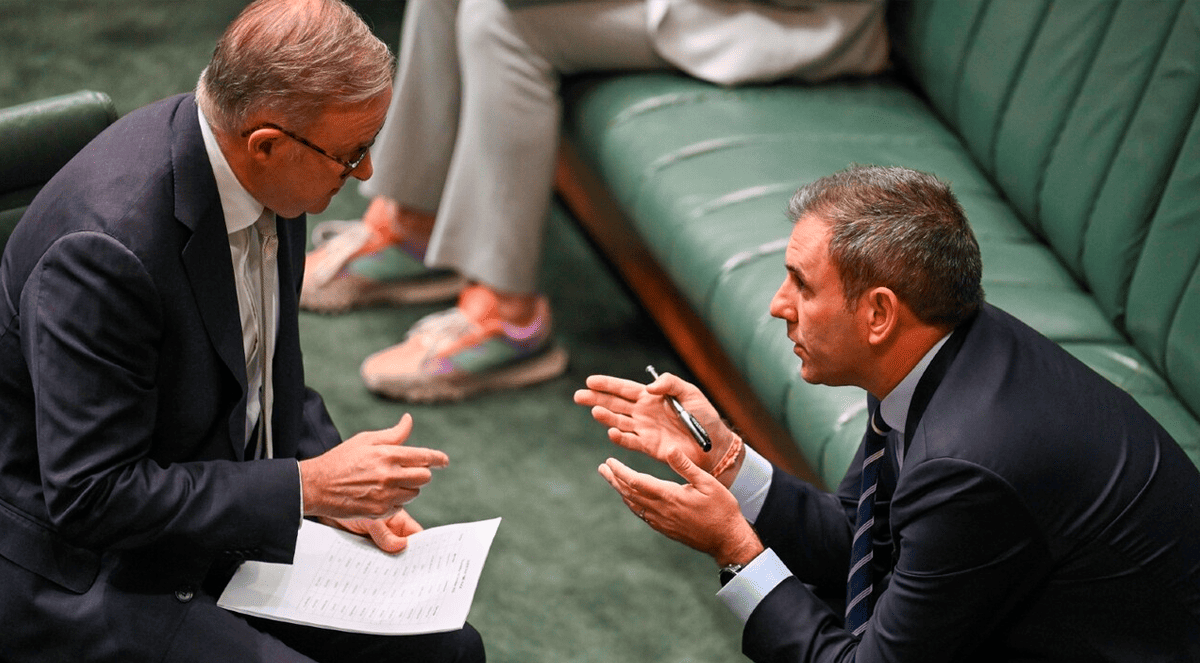
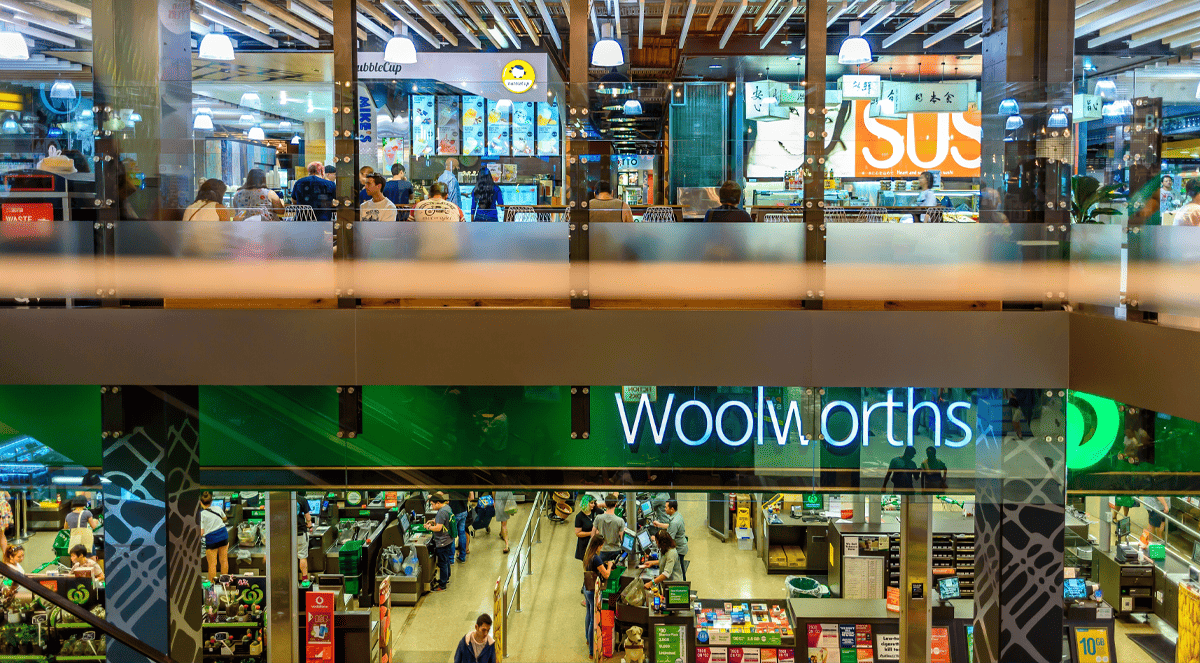
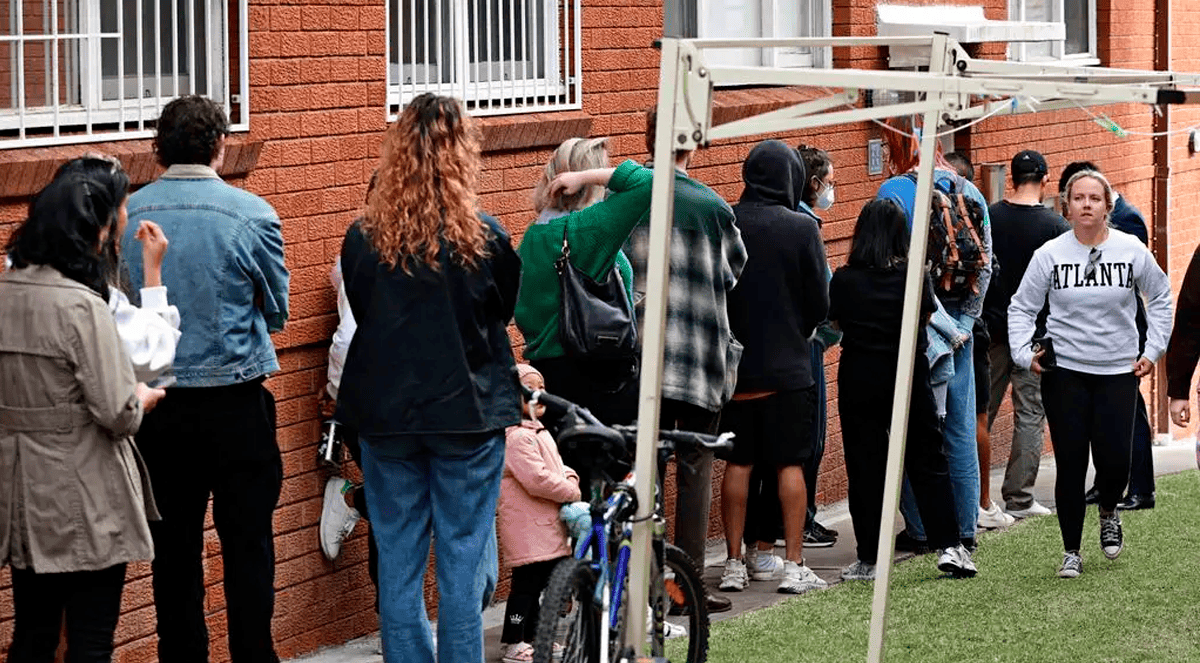
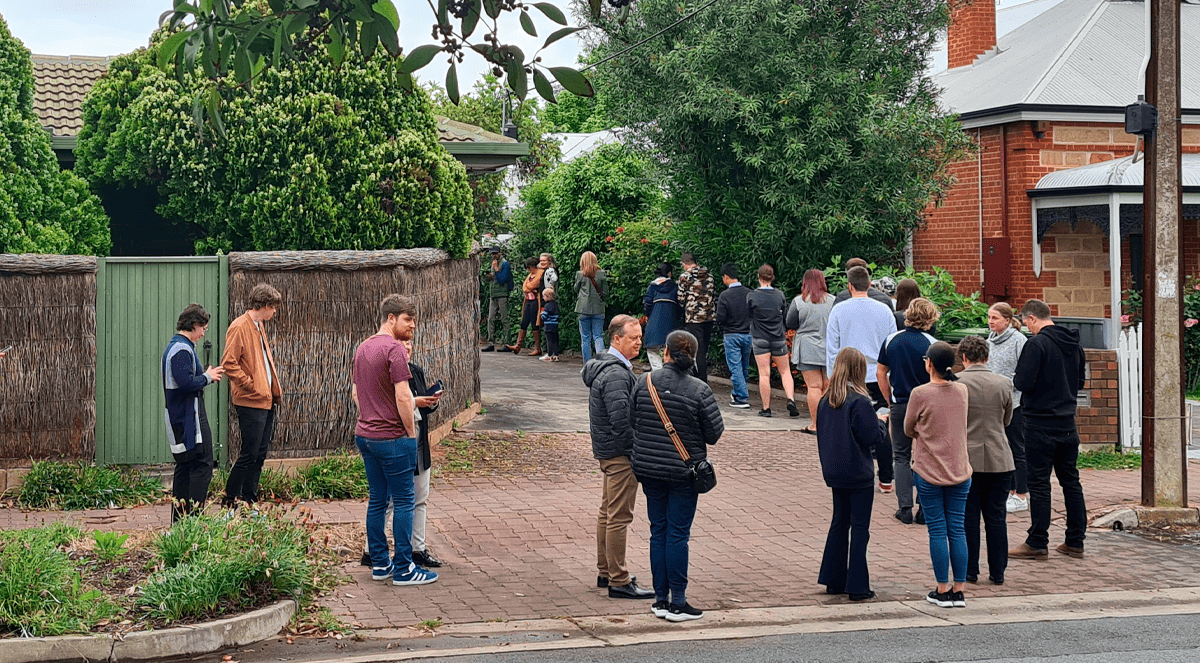
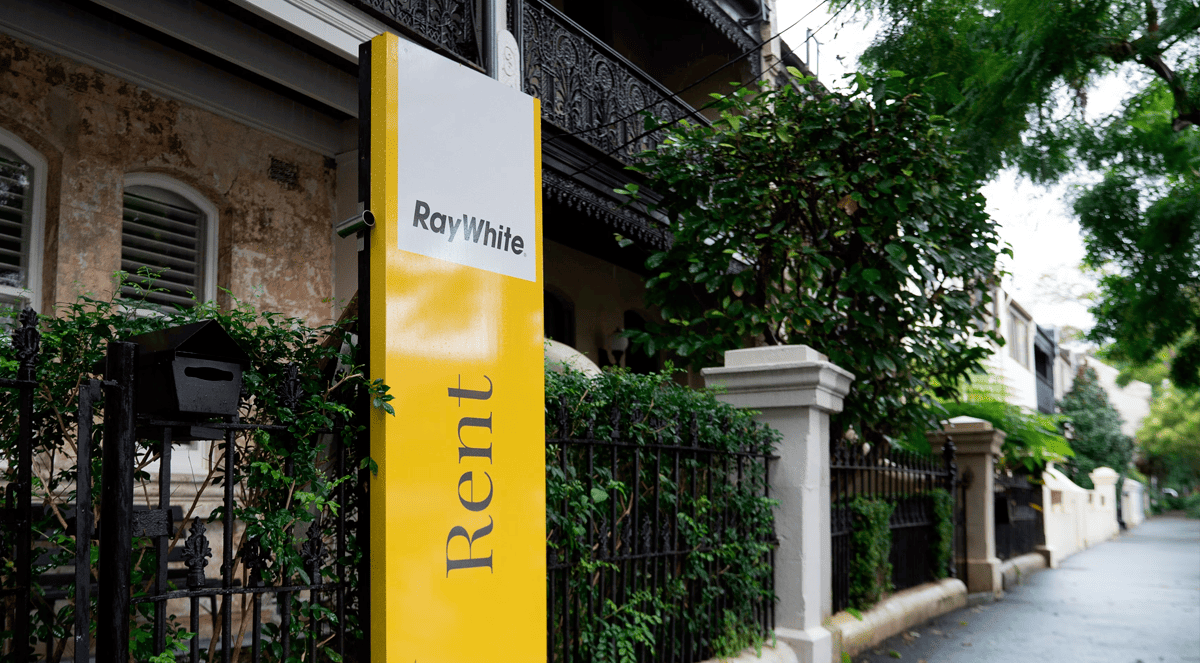



%20Scott%20Kuru%20DPU%20141.jpg?width=1920&height=1080&name=The%20Senate%20Just%20Exposed%20Australias%20Biggest%20$80%20Billion%20Housing%20Fraud%20(Inquiry%20Launched)%20Scott%20Kuru%20DPU%20141.jpg)




%20Scott%20Kuru%20DPU136.jpg?width=1920&height=1080&name=Aussies%20Just%20Got%20Hit%20With%20Double%20Taxes%20on%20Everything%20(This%20Has%20Gone%20Too%20Far)%20Scott%20Kuru%20DPU136.jpg)


%20Scott%20Kuru%20DPU%20133.jpg?width=1920&height=1080&name=JUST%20IN%20Something%20Major%20Just%20Flipped%20Australia%E2%80%99s%20Property%20Market%20for%202026%20(No%20One%20Saw%20This%20Coming)%20Scott%20Kuru%20DPU%20133.jpg)


.jpg?width=1920&height=1080&name=Rental%20Prices%20At%20Record%20Highs%20And%20Vacancy%20Rates%20At%20All%20Time%20Lows%20(New%20Data%20Reveals).jpg)
%20%20DPU%20EP%2014.jpg?width=1920&height=1080&name=Investors%20Shutting%20Out%20First%20Home%20Buyers%20(Investors%20At%20Record%20Highs)%20%20DPU%20EP%2014.jpg)

.jpg?width=1920&height=1080&name=Darwins%20Property%20Market%20Boom%20or%20Dangerous%20Gamble%20(REVEALED).jpg)

.jpg?width=1920&height=1080&name=The%20RBA%E2%80%99s%20Rate%20Cut%20Could%20Explode%20House%20Prices%20(Here%E2%80%99s%20Why).jpg)








.jpg?width=1920&height=1080&name=Warning%2c%20You%20Might%20Be%20Facing%20Higher%20Taxes%20Soon%20(1).jpg)




.png?width=1920&height=1080&name=Rate%20Drops%20Signal%20BIGGEST%20Property%20Boom%20in%20DECADES%20(1).png)

.jpg?width=1920&height=1080&name=Labor%20vs%20Liberal%20These%20Housing%20Policies%20Could%20Change%20the%20Property%20Market%20Forever%20(1).jpg)
.jpg?width=1920&height=1080&name=QLD%20Slashes%20Stamp%20Duty%20Big%20News%20for%20Investors%20%26%20Home%20Buyers%20(1).jpg)
.jpg?width=1920&height=1080&name=Trump%20Just%20Slapped%20Tariffs%20%E2%80%93%20Here%E2%80%99s%20What%20It%20Means%20for%20Australia%20(1).jpg)
.jpg?width=1920&height=1080&name=Federal%20Budget%202025%20More%20Debt%2c%20No%20Housing%20%E2%80%93%20Here%E2%80%99s%20What%20You%20Need%20to%20Know%20(1).jpg)
.jpg?width=1920&height=1080&name=Australias%20Housing%20Crisis%20is%20about%20to%20get%20MUCH%20Worse%20(New%20Data%20Warns).jpg)
%20(1).jpg?width=1920&height=1080&name=Australias%20RENTAL%20CRISIS%20Hits%20ROCK%20BOTTOM!%20(2025%20Update)%20(1).jpg)
%20(1).png?width=1920&height=1080&name=Is%20Adelaide%20Still%20a%20Good%20Property%20Investment%20(2025%20UPDATE)%20(1).png)
.jpg?width=1920&height=1080&name=RBA%20Shocks%20with%20Rate%20Cuts!%20What%E2%80%99s%20Next%20for%20Property%20Investors%20(1).jpg)
%20(1).jpg?width=1920&height=1080&name=I%20Predict%20The%20Feb%20Rate%20Cut%20(My%20Price%20Growth%20Prediction)%20(1).jpg)
.png?width=1920&height=1080&name=Why%20Property%20Prices%20Will%20Rise%20in%202025%20Market%20Predictions%20(1).png)
.jpg?width=1920&height=1080&name=Why%20Investors%20Are%20Choosing%20Apartments%20Over%20Houses%202%20(1).jpg)
.jpg?width=1920&height=1080&name=Why%20Rate%20Cuts%20Will%20Trigger%20A%20Property%20Boom%20(1).jpg)
.jpg?width=1920&height=1080&name=Retire%20On%202Million%20With%20One%20Property%20(Using%20SMSF).jpg)
.jpg?width=1920&height=1080&name=4%20Reasons%20Why%20You%20Should%20Invest%20in%20Melbourne%20Now%20(1).jpg)
%20(1).jpg?width=1920&height=1080&name=Old%20Property%20vs%20New%20Property%20(Facts%20and%20Figures%20Revealed)%20(1).jpg)
%20(1).jpg?width=1920&height=1080&name=Will%20The%20New%20QLD%20Govt%20Create%20a%20Property%20Boom%20or%20Bust%20(My%20Prediction)%20(1).jpg)
%20Scott%20Kuru%20(1).jpg?width=1920&height=1080&name=Inflation%20Hits%20Three-Year%20Low%20(Will%20RBA%20Cut%20Rates%20Soon)%20Scott%20Kuru%20(1).jpg)
.jpg?width=1920&height=1080&name=How%20to%20Buy%20Investment%20Property%20Through%20SMSF_%20The%20Ultimate%20Guide%20(1).jpg)
.jpg?width=1920&height=1080&name=Victoria%20Slashes%20Stamp%20Duty%20Melbourne%20Set%20to%20Boom%20Scott%20Kuru%20(1).jpg)
.png?width=1571&height=861&name=Are%20Foreign%20Buyers%20Really%20Driving%20Up%20Australian%20Property%20Prices%20(1).png)
.jpg?width=1920&height=1080&name=The%20Single%20Factor%20That%20Predicts%20Property%20Growth%20Regions%20(1).jpg)
%20Scott%20Kuru%20(1).jpg?width=1920&height=1080&name=My%20Prediction%20On%20Rates%20%26%20Negative%20Gearing%20(Market%20Crash)%20Scott%20Kuru%20(1).jpg)

-1.png?width=1920&height=1080&name=Major%20Banks%20Cut%20Rates%20Will%20RBA%20Follow%20Suit%20(Sept%20Rate%20Update)-1.png)
%20Scott%20Kuru-1.png?width=1920&height=1080&name=Rate%20Cut%20Coming%20What%20New%20Zealands%20Move%20Means%20for%20Australia%20(Sept%20Prediction)%20Scott%20Kuru-1.png)
%20(1).jpg?width=1920&height=1080&name=Buy%20when%20the%20interest%20rates%20are%20high!%20(Why%20you%20must%20buy%20now!)%20(1).jpg)
.jpg?width=1920&height=1080&name=Carms_Revised%20Taxes%20Due%20Aug%209%20YT%20Thumbnail02%20(1).jpg)
.jpg?width=1920&height=1080&name=Carms_Too%20Little%20Too%20Late%20Aug%207%20YT%20Thumbnail01%20(1).jpg)









.jpg?width=1920&height=1080&name=Carms_Rate%20Drop%20In%20July%20Jun%2010%20YT%20Thumbnail02%20(1).jpg)
.jpg?width=1920&height=1080&name=Carms_Own%20a%20Property%20V6%20Jun%205_YT%20Thumbnail%20(1).jpg)









.png?width=1920&height=1080&name=Artboard%201%20(3).png)






.jpg?width=1920&height=1080&name=YT%20thumbnail%20%20(1).jpg)

